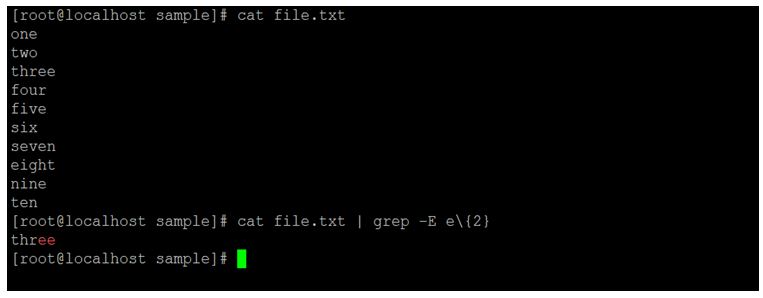



If you want to find instances of "I want cats" in a large file of personal aspirations while avoiding "I want catsup", either of these commands would work just fine: $ cat wish-list The -w and \ options for selecting whole words also work for phrases. Besides, these options wouldn't have a chance of finding your target text if it appeared inside quotes or following by some character other than a blank while still clearly a whole word: $ grep -w cat program.c This sure beats looking for a whole word by grepping for " cat ", "^cat " and " cat$". $ grep "\" /usr/dict/wordsĮither of these tricks will keep you from getting "catharsis" and "catatonic" when you only want lines containing "cat". 'test.' test.lm 'test.lm' test.lm 'test.lm'. The regular expression for this is '4jan2002' Filename wildcards translate like this. It is much more limited, but it can be a good toy to play with regexes. Its possible to do this using grep(), but its harder - you are looking for a string that starts '4jan2002' and then ends. Our does not accept any options and the REGEX itself needs to be included in the script replacing the word REGEX. The following script on the other hand works like this: perl FILEs. Don't forget to put your expression in quotes as shown. We can grep an exact match by putting a regex match of beginning ( ) and ending ( ) char. The command line grep generally works like this: grep options REGEX FILEs. You can also use the regular expression \ delimiters that select whole words.


 0 kommentar(er)
0 kommentar(er)
